|
The family is the environment in which we learn to relate to others, where we are cared for and loved. But it can also be a laboratory for sadness, bruising, and wounding. Moments of grace separate one from the other. Mere humans living together in close proximity in the home, sharing the nitty gritty of life, is full of all kinds of challenges! How many times do we have a misunderstanding and have the sense to apologize? Dealing with people is messy business and hurt happens. It is heroic to operate in the grace of the Holy Spirit to ask forgiveness when we hurt one another. The simple ability to look past our own feelings and see how we impact others – that is life-changing behavior. “I’m sorry that what I did was hurtful to you. Please forgive me”—this is humility, and when we operate at this level within our family, we can change the world. As I see it, the two most important virtues of a holy family are patience and forgiveness. Thank goodness perfection is not required, just steadfastness.
The readings from the Mass for the feast of the Holy Family, which we celebrated on the first Sunday after Christmas, are beautiful reminders of how to behave and interact with each other in our families. “God sets a father in honor over his children; a mother’s authority he confirms over her sons. He who honors his father atones for sins; he stores up riches who reveres his mother. He who honors his father is gladdened by children, and when he prays he is heard. He who reveres his father will live a long life; he obeys God who brings comfort to his mother. My son, take care of your father when he is old; grieve him not long as he lives. Even if his mind fail, be considerate with him; revile him not in the fullness of our strength. For kindness to a father will not be forgotten, it will serve as a sin offering-it will take lasting root.” Sirach 3:2-7, 12-14 This passage expounds on the fourth commandment because Jesus wanted us to understand the importance of family as the cornerstone of society. In her acceptance speech for the Nobel Peace Prize in 1979, Saint Mother Teresa said, “My prayer for you is that truth will bring prayer in our homes..[and] we will begin to love. And we will love naturally, we will try to do something. First in our own home, [then the] next door neighbor in the country we live, [then] in the whole world.” In our progressed world, we think of evangelization and mission in terms of global work, but we cannot achieve spreading the faith if we do not practice in our own families. Colossians 3:12-21 gives us further practical instruction on how to relate to one another. “As the chosen of God, then, the holy people whom he loves, you are to be clothed in heartfelt compassion, in generosity and humility, gentleness and patience. Bear with one another; forgive each other. The Lord has forgiven you; now you must do the same. Over all these clothes, put on love, the perfect bond. And may the peace of Christ reign in your hearts, because it is for this that you were called together in one body. Always be thankful. Let the Word of Christ in all its richness, find a home with you. Teach each other, and advise each other, in all wisdom. And whatever you say or do, let it be in the name of the Lord Jesus, in thanksgiving to God the Father through Him. Wives, be subject to your husbands, as you should in the Lord. Husbands, love your wives and do not be sharp with them. Children, be obedient to your parents always, because that is what will please the Lord. Parents, do not irritate your children or they will lose heart.” What makes the family so extraordinary is all the goodness that can come when we learn to love. We die to self in saying we are sorry for our offenses. We grow in virtue when we focus on the needs of others instead of ourselves. A quote often attributed to G.K. Chesterton states, “The most extraordinary thing in the world is an ordinary man and an ordinary woman and their ordinary children.” God has set an incredible task before us – to love the people in our family through our actions and our attitude. This is the heart of radical evangelization. And it will change the world! For more resources on marriage and family, please click here.
1 Comment
“Through your infinite mercy… destroy in me all my cruelty; give me your mercy, transform me in your mercy, and let my life be a life only of works of corporal and spiritual mercy for the benefit of all.” - St. Vincent Pallotti If one goes online right now, he or she will find many uplifting posts on social media. But all too often, there are also cruel attacks aimed at one another—even by practicing Catholics. Yet, as St. Vincent Pallotti reflected on and experienced, God is infinite love and mercy. In and through our experience of God’s mercy and love, we are challenged to live both out in our interactions with others both physically and online. As St. Vincent Pallotti attested to, the Corporal and Spiritual Works of Mercy are fundamental to our growth and spiritual lives. Everyone knows there is suffering of all sorts in our world. Why would a Christian want to add intentionally to that suffering? Sometimes, this can be done unintentionally through sins of omission. As we say at Mass during the Confiteor, we ask forgiveness for “what I have done and in what I have failed to do.” Doing the Corporal and Spiritual Works of Mercy can aid us in examining our consciences. We can then seek forgiveness and mercy from God, especially in the frequent celebration of the Sacrament of Penance which helps us experience more deeply the infinite mercy and love of God. From there, we go forth witnessing to others what we ourselves have experienced. Pope Francis reminds us: “Mercy towards a human life in a state of need is the true face of love” (Angelus, July 14, 2019). Instead of causing suffering, we are called to compassion—to suffer with another. This is not easy, but practicing the Corporal and Spiritual Works of Mercy will assist us in learning and living a compassionate, merciful, and loving way of life in Christ. May we pray with St. Vincent Pallotti to be transformed in God’s mercy for the benefit of all. May the charity of Christ urge us on!
“The beginning of all effort is the recognition of what is.” -Romano Guardini, Learning the Virtues That Lead You to God, 1963 Professional athletes do many appearances while playing. We get paid to show up at fundraisers, youth camps, watch parties, and promotional events. Something that is practically a guarantee when attending these appearances is one or more sets of parents coming up to tell us about their child who plays soccer. Often these conversations are quite enjoyable, but almost inevitably, there are a few who want to talk about how their son or daughter was short-changed in their youth soccer experience. There is a lot that these parents say to us, but the consistent element is: my child didn’t succeed because of some external factor. This may very well be the case for some of them. It is equally true, however, that it is certainly not the case for all of them. Much of the time the boy or girl just wasn’t good enough for a particular team, level of competition, or system of play. The point of this post is not to drop the heavy hammer that many kids run out of the athletic ability rope and should give up. No, this post is about the absolute necessity of taking an honest stock of where someone actually is--especially for the spiritual life. Romano Gaurdini says that “the beginning of all effort is the recognition of what is.” The reason for this being that you cannot begin making the effort to improve unless you start with who you already are. Any professional athlete will tell you that it is far more helpful to be taught how to assess and address weaknesses rather than to pretend they don’t exist. In fact, most professional athletes are fairly obsessive about identifying areas in their game where they can improve. If I determine I’d like to be a better shooter with my right foot, for example, then I must begin with the harsh—but necessary—reality that I can barely complete a pass with my right foot. If I never acknowledge my current ability, I’ll constantly run into problems—poor technique, inadequate fundamentals, and so on. I’ll never become a strong shooter without addressing the plain truth of my current ability. This is a skill that requires disciplined practice and will never simply be acquired because I want it to be so. First comes acknowledgment, then a plan for improvement, all for the hope of becoming a good right-footed shooter. This same principle can and should be applied to our spiritual lives. Just as improvement can only take place in athletics by beginning with where an athlete currently is, spiritual advancement can only begin by taking an honest assessment of where one currently is in relation to God. This means you’re far better off admitting that you struggle to pray for 5 minutes and taking that to God than wondering when you’ll receive the Stigmata. It is far more helpful to search deep within yourself and locate and name your pride, selfishness, ego, envy, or lust than only present to God your most pious and holy thoughts. He knows your heart already—He’s just waiting for you to know it as well. One of the most helpful exercises for high-school, collegiate, and professional athletes is to watch film in order to identify strengths and weaknesses. The team watches the most recent game in order to see what needs to be addressed that week in practice. This same concept can migrate into our spiritual lives—we look for points of departure and development in order to draw nearer to God. This practice is not to discourage but to improve. There’s no shame in acknowledging ourselves as we really are. In fact, God can really only begin to heal us once we acknowledge where we are hurt. The Physician cannot tend to our wounds unless we let Him see them. Several days ago, I was talking to my wife about this concept and she brought up how watching film for athletes is similar to the examination of conscience recommended by the Church. Examining one’s conscience on a regular basis is like looking back over the tape to see the strengths and the weaknesses—the graces and the sins—in order to grow. Then, with this self-knowledge, we can go to God, say thank you, and ask for forgiveness, trusting in His merciful love. God looks down on us and loves us as we are, but He also promises that His love is transformative. He looks down and says, “I love you,” while at the same time calling us higher. He wants us to identify what is so that we may cooperate with His grace and begin the beautiful work of improvement. This we call sanctification. May we all be willing to look at ourselves honestly—as we really are—so that we enter into the effort that is the fight of faith (cf Jude 3), trust that God’s grace is sufficient (see 2 Cor 12:9), and become the saints Jesus Christ died for us to be.
1 Corinthians 13: 4-8 “Love is patient, love is kind. It is not jealous, [love] is not pompous, it is not inflated, it is not rude, it does not seek its own interests, it is not quick-tempered, it does not brood over injury, it does not rejoice over wrongdoing but rejoices with the truth. It bears all things, believes all things, hopes all things, endures all things. Love never fails.” Like many of you, I have been quarantined in my house for the past ten days. I have set up my makeshift home office that moves throughout the day. My wife, on the other hand, is an ICU nurse: three to four days a week, she has been working in the very stressful environment that many of our medical professionals are experiencing. Over our four years of marriage, we have realized setting aside intentional time each day for one another is vital for our marriage. As we endure this pandemic, that intentional time has become even more necessary as we deal with the uncertainty, tension, worry, and fear building up over the day. One of the resources that my wife and I use to structure our time with each other is 1 Corinthians 13: 4-8. Throughout our twelve-year relationship, 1st Corinthians has been something we have continually turned to in both times of joy and struggle. Whenever this passage is read at Mass or during a wedding, I always feel a significant poke in the arm when “love is not rude” is proclaimed. Besides that subtle reminder from my loving wife, this passage always directs us back to our common call to love and support one another, especially during challenging times like today. Every family has had to endure this pandemic differently. However, we all share a call to set aside time to support our spouse, reminding them that our love—when it is centered on Christ and directed towards each other—can endure all things. Due to the stresses of family life, intentional time for prayer and each other are usually the first activities to go. While we dated across states, we made sure that our relationship included intentional time, eventually becoming a virtue of our relationship. When we married and began living under one roof, we assumed this time would happen automatically, but reality was the opposite. My wife’s schedule as a night nurse and mine as a pastoral associate meant our schedules were never in sync. We noticed our interactions becoming superficial, which caused us to easily become frustrated with each other and unaware of what the other was experiencing throughout their day. It took us almost six months to realize that even though we were living under the same roof, we had to be more intentional about our one-on-one time with one another. Pope Francis emphasizes couples setting aside this intentional time in his Apostolic Exhortation, The Joy of Love, “Time is needed to talk things over, to embrace leisurely, to share plans, to listen to one another and gaze in each other’s eyes, to appreciate one another and to build a stronger relationship...” (24). For my wife and me, this passage reminds us of how important setting distractions like our phone or TV aside for even 5 minutes, looking each other in the eye, and being able to share the highs and lows of our days is for our marriage. Pope Francis provides every couple the reminder that the love that is shared between spouses is ever-growing and takes the work of both partners to refine it. This meaningful time is more important during these weeks of quarantine, with the disease’s impact on the nation and our own family and friends, leading us to despair about the future. Too easily, we can let fear get the best of us, causing tempers to flare or directing emotions at our spouse or families. Like my wife and I when we first married, this intentional time will not automatically happen now that we are forced to be under the same roof. I would like to share some resources that my wife and I have personally found helpful throughout our relationship to support each other emotionally and spiritually. Hopefully, they will provide some structure to this time with your families, provide solace during these weeks, and become habits you will carry on after this pandemic passes.
[1] Francis, Amoris Laetitia,133. [2] Gottman, “The Natural Principles of Love,” 15.
There are several times throughout Scripture that I disagree with Jesus--today’s Gospel being one of them. Anytime I’ve experienced disappointment, injustice, or suffering, I have eloquently told Christ in exasperation, “this sucks,” or “I don’t like this,” or “my way is better.” I could use the same responses to Christ’s words today: “love your enemies…pray for those who persecute you…be perfect.” Are any of these things possible? In a word, no—if attempted alone. But God did not make man and then place impossible expectations on him. As Pope Benedict XVI is often attributed as saying, “you were not made for comfort, but for greatness.” And so, while Christ’s demands may seem unrealistic to every fiber within me, they guide me towards excellence—or, to use Jesus’ word, perfection. This perfection was the status of Adam and Eve prior to the Fall, and in an instance of particular grace, of the Blessed Virgin Mary. Baptism is the first step that allows us to grow in the perfection of the Father. Through it “we are freed from sin and reborn as sons of God; we become members of Christ, are incorporated into the Church and made sharers in her mission” (CCC1213) As sons and daughters of God, we are called to become like our Father. Baptism is the first step taken that enables us to be perfect as our heavenly Father is perfect. From there, we are called to cooperate with God’s grace in order to be transformed. It’s easy to think of our enemies as people bearing swords and armor, but my enemies do not have to be people who dislike me or who do not will my good. I can perceive a neighbor with jarring political views, or a family member with a pointed critique, or a gruff co-worker to be an enemy simply because they may injure my pride or annoy me. The complexity of human relationships and our own woundedness almost ensures that we may perceive enemies in any person—within our friends, family, church, community—at some point in our lives. And yet we are called to love those people and pray for them– especially the ones that may be closest to us. Jesus tells us that loving enemies involves not only doing acts of charity and extending forgiveness, but also praying. Intercessory prayer for our enemies is a form of charity. It means you are thinking about someone who has slighted you and lifting them up to God. It means blessing them in the midst of your hurt or wounded pride and willing their good in spite of it. It means you are engaging with your pain rather than avoiding or ignoring it—a humility which opens your heart to God’s grace and gives God room to work for his glory. It is for this reason that Jesus says to pray for those who persecute you. This relationship between prayer and charity is fundamental to the Christian life and guides us towards the perfection of the Father. Being a Christian should set you apart from the world. “If you love those who love you…what is unusual about that?” Jesus asks. The human way responds with “love your neighbor and hate your enemy.” That’s my first response, too. But the God who made man also knows what we are capable of and what he intended us for. And that is to be like him and share in his divine life. So, if God is love, we are called to be love. And this is made manifest in loving your enemies, praying for those who persecute you, and striving for Godlike perfection. As I’ve mentioned, it’s ok if this seems hard or even undesirable. I’m often reminded of the Scripture passage, “While the Spirit is willing, the flesh is often weak.” While Christ’s commands may sound honorable in theory, they are incredibly difficult in the heat of the moment or in the daily grind. But I believe the point Christ is reiterating in this passage is the need for radical charity—one which is given though not deserved. It was this charity that enabled Christ to look into the eyes of those who tortured and crucified him and say, “Father, forgive them, they know not what they do.” This—this is what separates the Christian from the rest of the world. And it is not reserved for Christ or Mary or for humanity before the Fall—it is possible for each and every one of us if we but open ourselves to God’s grace. The saints learned this well. I remember reading, for example, in the Diary of Faustina about an unjust instance with a priest who interrupted her confession and told her to come back that evening, only to ignore her and send her home that night. Immediately, Faustina praised God, prayed, and offered up sacrifices for this priest. Without a moment’s hesitation, she loved her enemies, prayed for those who persecuted her, and therefore imitated the perfect charity of the Father. As we continue to follow Christ, may we ask for the strength to follow in the footsteps of the saints in order to be perfect as our heavenly Father is perfect. Questions for Reflection: Do you find Christ’s words in today’s Gospel difficult? What’s one step you can take today towards loving your enemies? Holy Week is one of my favorite weeks of the year; each of the days builds with anticipation and I get excited just by the thought of Easter Sunday. Lent is almost through and it’s almost time to be joyful in the Risen Lord. When I was little, I felt this anticipation and excitement too. I would spend Holy Week letting people know that Easter was only a couple short days away—it felt like spring would officially be here as soon as we woke up on Easter Sunday! “The very best holiday of the year” was coming, and I had to get ready for it! Did I fully understand it was Christ that I was waiting for or did I just want to wear my new white shoes for church? Looking back, although it could have been the new Easter shoes, I think my 10 year-old-self would have agreed that I really was waiting for Holy Week as the final stretch to the finish line on a journey that began on Ash Wednesday.
In today’s Gospel reading, we read about moments of betrayal and loyalty. Judas leaves the Last Supper to betray Jesus while Peter in his humanity says that he will never deny him. I find it to be one of the most powerful Gospels of Holy Week. Here’s why: Like Peter, we are called to be disciples whose repentance leads to an experience of God’s forgiveness. Jesus knows that his friends will betray him and that he has limited time left on Earth. On one hand, Judas tries not to be obvious about his deception as he leaves the table, and on the other hand, Peter publicly tells Christ that he will stand by him and never fail him. Ultimately, both men betray Jesus, but it’s Peter who seeks forgiveness and allows himself a second chance. Judas, on the other hand, is overcome with guilt and despairs that his sin is beyond the reach of God’s mercy-- eventually taking his own life. We are like Peter in so many ways! We say we love Christ and that we could never deny him, but at the first sign of pressure we sin and turn our backs on him. How often have we chosen to do something that pulls our hearts from Jesus? It is during Lent—especially during Holy Week—that we recall the pain we’ve caused Christ. This week and each day, Jesus gives us another chance to say to him, “Forgive me; I have sinned.” When Christ meets his disciples after his Resurrection, he asks Peter, “Do you love me?” Let us respond with Peter this Easter, “Yes Lord, you know that I love you!” As Easter approaches, we remember how much we are loved by Christ in his Passion, death on the Cross, and soon to be Resurrection. In these next few days, I challenge you not to say, “Lord I could never deny you!” but instead, “Forgive me Lord, for I have sinned.” Last year on Good Friday, Pope Francis said, “Lord Jesus, always grant us the grace of holy repentance...the spark of hope is lit in the darkness of our despair, because we know that your only measure for loving us is to love us without measure.” This Holy Week, in this time for “holy repentance,” let us make sure to spend these last days in Lent with our hearts preparing for Easter. May we use these remaining days in the desert as a time for forgiveness and allow our hearts to be loved by Christ. May all of our hearts gleam with anticipation for Holy Week and better knowledge of the Risen Lord! On the evening of our wedding, after the ceremony and reception, my husband and I knelt down and washed each other’s feet. It was an act of love and humility that we wanted to be the foundation of our marriage. We had a beautiful example: A King who washed the feet of peasants; a Savior who washed the feet of sinners; a Friend who washed the feet of betrayers. The washing of the disciples’ feet was the act of a dying man. With the last few moments of his precious life, Jesus knelt down. In the last hours with his closest friends, he served. This was the manifestation of the new commandment he was to give moments later at the Last Supper: “Love one another. As I have loved you, so you also should love one another.” Love. This is what it is all about—the meaning of the Christian life. Jesus models love by washing not only the feet of his beloved friends, but of those who will betray him. He knows not only of Judas’ betrayal, but also of Peter’s—which probably stung him even more. He knows Peter, James, and John will fall asleep with him in the Garden. He knows that almost all of his disciples will flee during his torture and crucifixion. And yet he removes his outer garments and kneels to wash their dusty feet. It would not have been a pleasant affair; their feet would have been caked in dirt and bathed in dust. Perhaps their toenails were long. The feet of these gruff men would have stunk. But I do not imagine that Christ poured just a few drops of water on their feet ceremoniously and then moved on. I believe he spent a few quiet moments with each Apostle, truly washing their feet clean of dirt and grime, and making each feel like the only person in the room. I imagine him drying them tenderly, and looking up with eyes that said, “I do all of this for you.” Were the Apostles embarrassed by such a vulnerable display of affection? Scripture tells us that Peter recoils and says, “You will never wash my feet.” For one man to kneel down and wash the feet of another required vulnerability. For the King of Kings to kneel down and wash the feet of sinners required sacrificial, humble, earth-shattering love. This love culminates for us this week on Good Friday, when we commemorate the crucifixion and death of Christ. While the Church remembers the washing of the disciple’s feet on Holy Thursday, my husband and I have started a tradition of washing each other’s feet on our anniversary. Most recently, we did this on Valentine’s Day. On the day our culture celebrates love, it seemed appropriate to once again remind ourselves of what love actually looks like. Has anyone ever washed your feet? Perhaps it was part of a Holy Week service at your church or school. Perhaps it was part of a retreat you went on. To have your feet washed is an intimate experience. I think it is often more uncomfortable for the one getting their feet washed than it is for the one doing the washing. In my case, I’m usually worried my feet smell or that my nails aren’t groomed. I’m so worried about what my feet will reveal about me and what the other person is thinking that it’s hard for me to enjoy and appreciate the solemnity and beauty of this moment. Perhaps my thoughts echo Peter: “You will never wash my feet.” As we draw nearer and nearer to the pinnacle of our faith celebrated in the Triduum, we are probably coming to the end of Lent with dusty feet. We’ve trampled for about forty days in the desert and have probably stumbled in our Lenten observances a few times. Our feet may be caked in inadequacy, sin, or weakness. Maybe you, like me, are thinking so much about what’s on your feet that you’re unable to look Christ in the eye and allow him to thoroughly wash you. As we enter into Holy Week, I invite you to pray about what keeps you from allowing Christ’s gaze to meet your own. What causes you to join Peter in saying, “You will never wash my feet”? As Pope Francis said during his Apostolic Visit to Cuba, Jesus “came precisely to seek out all those who feel unworthy of God, unworthy of others. Let us allow Jesus to look at us. Let us allow his gaze to run over our streets. Let us allow that look to become our joy, our hope.” Christ’s response to Peter’s hesitancy is: “Unless I wash you, you will have no inheritance with me.” Perhaps he is saying that we will be unable to live a life of discipleship if we have not experienced his gaze—the sacrificial love of God. It is this encounter with Christ, with his gaze, that transforms us. We love because we have first been loved—this is our joy, our hope. This Easter season, may you experience Christ’s life-changing gaze as you allow him to wash your feet. Questions for Reflection: What keeps you from allowing Christ’s gaze to meet your own? What causes you to join Peter in saying, “You will never wash my feet”? For more resources to accompany you during the Lenten and Easter seasons, please click here. The Gospel reading for the Fifth Sunday of Lent is the familiar passage of the adulterous woman and her accusers. For as long as I can remember, this story has been bittersweet: it involves targeted harassment and shame, but also redemption and conversion. At this point in Lent, I don’t think there is a more needed, or relatable, lesson for us to be reminded of and to work on accepting. So, we’re five weeks into our Lenten journey. We’ve been skipping meat on Fridays and trying to live without whatever convenience or vice we decided to give up or purge from ourselves. Maybe we’re praying a little more than we normally would or are setting aside a few minutes to read a daily reflection from those little black books left in the back of our churches. But even with all of these intentional and humbling acts and motivations, we often still feel unworthy or like we’re faltering. Because of this, it’s possible to say that we don’t even need the Pharisees to judge us and bring us for judgement before God – we’re doing it enough for ourselves. To overcome this, I want us to reflect on three things: personal attitude, an open heart, and recognizing what’s in front of us. I think sometimes we’re too hard on ourselves. We allow our own harsh judgements to replace the only one that truly matters: God’s. Our own personal attitude can prevent us from accepting and sharing in the love and grace of God if we constantly feel that we are unworthy or failing. In the Gospel, when the adulterous woman is brought before Jesus, it does not say that she cried or tried to run. In the Gospel account, she lays at the feet of Jesus, lets Him clear her name and, ultimately, lets Him forgive her sins. Here’s a secret I’ve learned that the Gospel has been trying to tell us for a few thousand years now: Man is never worthy on his own, but has been made so by Christ, who offers redemption to all. If man were worthy, Christ would not have needed to redeem us after the Fall. So, we need to stop allowing our own negative perception of our efforts to prevent us from bearing or receiving the fruits of God’s grace and forgiveness. Why was Jesus’ reaction effective with the woman? Christ did not condone her sin, but met the woman in her sinful situation with love and mercy. Surely, such a transformation is not possible without a profound encounter with God’s mercy, an openness to change, and conversion of heart. The adulterous woman of this week’s Gospel is told by Jesus to “Go, and from now on do not sin any more” (John 8:11). As a result of her encounter with Jesus, her heart was changed, and she spent the rest of her life trying to grow closer to Him. We are called to do the same – during the Lenten season or any other time. If we are open to the love of God, it will fill us and strengthen us in our actions. With a faithful attitude and a heart that is open to change, all that is left is for us to encounter God. In order to do this, we must recognize what is in front of us. In the challenges, relationships, beauty of nature, art, and moments of prayer, God is entirely present and inviting us to share in it with Him. What a beautiful gift, and how accessible and truly joyful this is for us! I want to suggest that each of us take a few moments each day this week to reflect on how we’ve gone out of ourselves to be with or grow closer to God. Instead of grumbling about how much we miss Netflix or those amazing chocolate caramels, be proud of yourself for being so committed to your solidarity with Christ and His own suffering. Or, if you tripped up, instead of getting frustrated with yourself, reflect on the three Stations of the Cross in which Jesus falls. Absolute perfection is never what God expects or even desires – He’s just pleased to recognize a desire in us to do better. For more resources to accompany you along your Lenten journey, please click here. Question for Reflection: How can you grow closer to God in the final days of the Lenten season? As I have gotten older, my favorite part about Lent has become the fact that we have the privilege of willingly walking into the desert - into these 40 days - with our Lord. I think there are a lot of times in our lives when we suddenly find ourselves in the desert - desperate for water, nourishment, or companionship. It is in the desert where we not only grow in intimacy with the Lord, but are also able to be strengthened through real repentance. What is true for us in the deserts of our lives is the same thing that was true for the Prodigal Son in this Sunday’s Gospel: we receive the promise of a Father who receives our repentance with mercy. The story of the Prodigal Son is an important one for us to reflect upon as we continue on our Lenten journeys - it is through repentance that the very son who squandered his inheritance is welcomed back with open arms into the mercy of his father. And the story doesn’t end there: not only does the father embrace and welcome his son back, he rejoices and celebrates his return for those around him to see. It is through our repentance that we experience the mercy of God; it is through our repentance that we receive the promise of the desert of these 40 days. This is so beautifully echoed in all the readings that the Church gives us during this season: God the Father rejoices when we are brought back to life again (Luke 15:32). We as Catholics have the unique privilege of receiving this mercy every time we hear the words of the priest absolving us in the Sacrament of Reconciliation. Our moments of feeling desperate in the desert can be alleviated by honest repentance. After one particularly frustrating time in my life, I remember feeling like the Prodigal Son: convicted that I needed to repent and return to God, but also feeling shame over all the ways that I had squandered what the Lord had given me. And in that moment a priest reminded me that confession is always a place of victory. Like the prodigal son who acknowledged his failures and was welcomed back with mercy and celebration, we too find an outpouring of mercy and grace when we reconcile ourselves to God. As we journey towards Calvary, we do so knowing that our repentance leads to an encounter of mercy and ultimately to victory. Questions for Reflection: What are some moments in your life when you’ve encountered the mercy of God and others? How did these moments affect you? For more resources to accompany you in your Lenten journey, please click here. “She stood behind him at his feet weeping and began to bathe his feet with her tears. Then she wiped them with her hair, kissed them, and anointed them with the ointment.” -Luke 7:38 My toddler is a prime example of living in freedom. He has no true concept of time and goes about his day living in the present. With only two years under his stretchy pants, he has yet to master social norms and polite behavior. He exhibits raw emotion. Because of this, you’ll hear him scream in a store for no reason, make demands at the dinner table, or wail because it’s time for bed. You’ll also hear his gasp when he sees an airplane or helicopter, a “wow” uttered upon seeing the zebra at the zoo, or uncontrolled giggles when he is playing hide and seek. He lives unfiltered, without a second thought regarding how he is received or perceived. It’s a beautiful and awe-inspiring freedom. The woman in the Gospel today lives this to a certain degree. She enters the well-furnished room but does not look about. She smells the aroma of delicious food but does not salivate. She comes solely for Christ, to receive the life he has to offer. Her gaze cast downward, she finds his feet and drops to her knees—uncontrolled tears splashing from her eyes, bathing his feet and forming a puddle on the ground. She does not care about her reputation or what others might think of her actions. She knows her identity: a sinner in need of forgiveness. And she runs to Christ, the well of salvation. The sinner bathes the sinless with her tears, and she is saved. The Church today can learn much from this Gospel passage. We are hurting, broken, and sinful. We do not have to experience crisis to make this statement true, though in times of darkness it becomes more apparent. We debilitate the Body of Christ every time we choose to sin. How do we respond to sin, our own and that of others? Are we humble and repentant? Are we paralyzed? Are we angry? Do we despair? Do we drop to his feet in the Sacrament of Reconciliation or have we scoffed like the Pharisees? In times of darkness, where do we turn? I believe we have a lot to learn from the sinful woman. She does not compare her sins to those of the Pharisees dining with Christ. She does not stay in her home, paralyzed by her sin and her grief. She does not continue to live her day to day life while telling herself that her sin is personal and private. And she does not wait outside the dinner party for Jesus to finish his evening. As my toddler would, she barges in, without any nods to social norms, and goes straight to our Lord. When she is convicted, she runs to seek redemption. She acts. She loves. She repents. And this child-like faith, Jesus says, is what saves her. As we, the Church, move forward in grappling with our sinfulness, let us respond by running to the feet of Christ in humble repentance and by daring to believe in the freedom that he offers. Only he can heal us from within and transform our sinfulness into glory. Let us show Christ great love in our words and deeds: through prayer, through the sacraments, through acts of charity. Let us live in the freedom of his words: “Your faith has saved you; go in peace.” In the most beautiful chapter of the best work of one of the greatest Catholic theologians - in my opinion, anyway - Saint Augustine tells the story of his mother, Saint Monica.
Saint Monica was born to a good Christian family but she had little luck in marriage. She was married at a young age to a man named Patricius, and they had three children together. He was a pagan, he was angry, and he was unfaithful. But Monica was patient and merciful. Despite Patricius’s evil ways, she served him with devotion, mercy, and constant prayer. At the end of his life, only one year before he died, her daily prayer and kindness were rewarded and Patricius was baptized into the faith. But Patricius’s conversion did not end Monica’s sorrow. Augustine was seventeen when Patricius died, and his conduct was worse than his father's. He was brilliant, but lazy. He drank excessively, stole, and lived promiscuously. The year his father died, Augustine fathered a son of his own out of wedlock. Despite Monica’s urging, Augustine refused to settle down and get married. Worse still, Augustine rejected his mother’s faith and joined the Manichean cult. But Monica never ceased her kindness and prayers. She followed Augustine as his teaching lead him to Carthage, to Rome, and to Milan. In Milan, Monica met Saint Ambrose, then a bishop. In serving in his church, she came to know Ambrose well, and Ambrose came to understand her sorrow for her son. He comforted her, saying, “Surely the son of so many tears will not perish.” Her prayers were eventually answered. A year before she died, Augustine was baptized. He went on to become one of greatest saints in history. As she lay dying, Monica told her son that her life’s work was complete. “One thing there was, for which I desired to linger a little while in this life, that I might see you a Catholic Christian before I died. God has granted this to me in more than abundance, for I see you his servant, with even earthly happiness held in contempt. What am I doing here?” (pg 223). Saint Monica gives us a powerful example of the influence of intercessory prayer (CCC 2634-2636). Monica did not use words to persuade Augustine to convert. Instead she led by example, living with kindness and praying on his behalf. For thirty-two years she patiently prayed for his conversion, and God rewarded his faithful servant. We are called to do the same. The Letter of James says, “Pray for one another, that you may be healed. The fervent prayer of a righteous person is very powerful” (James 5:16) and Jesus tells us, “Amen, amen, I say to you, whatever you ask the Father in my name he will give you.” (John 16:23). We are all sinners and we all need God’s intercession. But we are not alone. God desires us to pray for our own forgiveness and for the forgiveness of others. That is why we pray “forgive us our trespasses” and not “forgive me my trespasses.” People are difficult. We treat each other with anger, unfaithfulness, and unrepentance. But rather than meet those that harm us with our own shortcomings, let us instead follow Saint Monica’s example and live a life full of kindness and prayer. Pray for God’s help, pray for the forgiveness and conversion of others, and Saint Monica, pray for us. St. Monica’s feast day is celebrated on Monday, August 27, 2018. The Latin word for mercy is misericordia, which is formed from two other Latin words: “miseriae,” which means misery or suffering, and “cordia,” which means heart. One could thus say that the mercy of God draws misery out of a person’s heart. It is of the nature of mercy to therefore heal wounds. The mercy we are speaking about here is broader than the reception of forgiveness from God and granting forgiveness to others. It includes all of the spiritual and corporal works of mercy, which are also aspects of God’s very own love for us. As Pope St. John Paul II once said, “Mercy is love’s second name.” However, in this brief post, I’m going to focus on that aspect of mercy we are the most familiar with – forgiving and receiving forgiveness. I am an adult child of divorce, so I have seen first-hand what the lack of forgiveness can look like. I believe that divorce typically involves one or both parents withholding mercy. There are, of course, other complicating factors for the divorce, but I believe there is usually a failure of mercy somewhere in the relationship. I knew I did not want to repeat the mistakes of my parents, so I took a long look at mercy and examined how it might be a key to love and to healing wounds. In terms of love, I have always been struck by the beautiful reality that Matthew 19, which is Christ’s strongest teaching about the indissolubility of marital love, is preceded by one of Christ’s strongest teachings on mercy in Matthew 18, where he exhorts his followers to forgive 77 x 7 times. This number is a symbolic way for saying, “infinitely and unconditionally.” The proximity of these two teachings in the Bible suggests that the form of indissolubility is merciful love. Merciful love is not optional in relationships, but the foundation for its long-term success. Offering forgiveness gives a new beginning to the one who offends and helps relationships build from injuries that inevitably arise in any relationship, even great ones. As Ruth Graham, the wife of the recently deceased protestant minister Billy Graham said, “Marriage is a union of two good forgivers.” To offer forgiveness in the radical sense Christ is proposing here, we need to experience Divine Mercy ourselves. We can do this by going frequently to the Sacrament of Reconciliation and understanding what is occurring. In the Sacrament of Reconciliation, we receive unmerited forgiveness from Christ. He does not owe us forgiveness and yet he forgives. He also always forgives us despite the number of times we repeatedly fail at the same sin. “Christ never tires of mercy,” Pope Francis reminds us. And Christ forgave us while we were sinners before we were even repentant and able to receive that forgiveness. His cry on the Cross, “Father forgive them, for they know not what they do,” is echoed down through the centuries. When we experience this unmerited forgiveness in the Sacrament of Reconciliation, we are healed because we recognize that Christ loves us “just because.” He does not love us because we do not have sin, failures, or weaknesses. He loves us despite these things and the ugliness of our actions. He loves us “just because” we are always His beloved. Of course, Christ wants us to be repentant, to promise to be holy and sin no more, in order to be reconciled with Him and others. Yet at the same time, we must never forget that this divine forgiving love always remains unmerited because Christ loves unconditionally. With the reception of this Divine Mercy, we can then live mercifully in our own relationships in the same way and not be afraid when we or our spouse, friends, or family make mistakes, have conflict, or sin. These things happen; we are not perfect. In such moments, it is always possible to forgive, to receive forgiveness, and to love if we draw continually upon God’s grace and forgiveness. By doing so, we’ll experience healing and a deeper unity again and again through mercy. Questions for Reflection: When was the last time you received the Sacrament of Reconciliation? How have you experienced God’s mercy? This Lenten season, I’m trying to be intentional with my prayer. In the Gospel today, Jesus teaches the disciples to pray the Our Father. When I read this passage to my students, they were really excited to make the connection to Jesus’ teaching and to a prayer some of them had heard before. Their little faces lit up and hands shot into the air to share about their experience with the Our Father.
In a 2016 homily, Pope Francis explained that the concept of “Father” in the Our Father is the cornerstone of prayer, for it gives us our identity as sons and daughters of God and as a family. Prayer is a way to connect with God, talk to him, and deepen our relationship with him. In prayer, Pope Francis said that if we do not begin “with ‘Father’ and with the awareness that we are children and that we have a Father who loves us and knows all of our needs,” we can sometimes find ourselves in our most vulnerable place: alone. It can be hard to be open and listen for God’s voice in the midst of worrying about ourselves and our concerns. This Lent, I invite you to use prayer to help deepen your understanding of your identity as the son or daughter of God and to put aside distractions and focus on Christ. In prayer, we can discover a deeper sense of self and of others. We can also take a moment to consider our failures and better understand God’s forgiveness. In the Our Father, we ask God to forgive us and pray that we can find strength to forgive others. That strength can be found in the Sacrament of Reconciliation and in making amends to those whom we have wronged. This deepens our relationship with God and with others. Pope Francis continued, “If you go to pray and say only ‘Father’, thinking of the One who gave you life, who gives you your identity and loves you, and you say ‘our’, forgiving everyone, forgetting offences: this is the best prayer that you can make”. Throughout Lent, I want to deepen my prayer life and model for my students and my husband that God is truly at the center of my life. During Lent, I’d like to challenge myself to sit in the chapel some mornings before school starts and pray in silence before God. I’d also like to plan my morning around a daily Mass. Throughout Lent, I will look to the Our Father as a centering and reflective prayer. Jesus taught us to pray with it, and I intend to use these simple but transformative words to guide my life. Just as my students continue to learn about prayer, I too will continue to allow myself a chance to start over and prepare my heart for God’s love this Lent. As we continue on our Lenten journey, I invite you to reflect on the following questions asked by Pope Francis in his homily: “Do I see God as Father, do I feel that He is my Father? And if I do not feel that He is, do I ask the Holy Spirit to teach me to know this? Am I capable of forgetting offences, of forgiving, of letting things go and asking the Father: ‘they are also your children, and they treated me badly, please help me to forgive?” For more Lenten and Easter resources, please click here. In 61 days, I will no longer have my maiden name, will no longer have to mark “single” on tax forms, and will be the happiest girl in the world. This is because I will marry my best friend at our parish in front of our family and friends, and thus become man and wife. But before we’re retired and sitting together on the porch swing celebrating many years of happy marriage, my fiancé and I have some work to do.
The journey of preparing in mind, body, and soul for the vocation of marriage has been an eventful one. Wedding planning isn’t easy. It has tested our patience and our communication skills. But on that Saturday afternoon 61 days away, when we commit ourselves to each other, we are making a statement. In our profession of vows, we will be showing the people in attendance that Christ is a central part of our lives, and that God is at the center of our relationship. Throughout our ceremony, we are inviting our guests to reflect on God’s love for them and to join us in sharing our faith as the Body of Christ. Sacraments are meant to bring people closer to Christ. Those present will witness this sacrament from wherever they are in their walk of life and faith journey, and hopefully have an encounter with God. We look forward to providing a moment of evangelization as missionary disciples through our marriage. My fiancé and I have learned a lot from the example of married friends and family who live out their Catholic faith. One couple that recently welcomed an addition to their family has been instrumental in answering questions we’ve had about what happens next and giving us advice throughout our marital preparation. They’ve helped my fiancé and I better understand what it means to be a young and newlywed couple, juggling jobs, obstacles, and life events, and doing it all with faith in God. They and so many others have shown us what it means to live out marriage with love for God and each other. In the Archdiocese of Washington, two other couples have been examples of commitment and love. Ephraim and Sussie, who have been married for 25 years, and Bob and Laurin, who have been married for 75 years, talk about their love stories and how they cherish each other to this day. Couples like these have had to work hard at their marriage through good times and bad—just as we will. Through it all, they keep God at the center of their relationships. During these next 61 days, I will pray for my future husband, for myself as a wife, and for God’s grace to be present through it all. We will work at our marriage, this is for certain—and it won’t be easy. But with communication, understanding, forgiveness, and prayer, we will make it. During the Pre-Cana course we attended a few months ago, we learned a few things about communication and prayer that I would like to impart to anyone, whether you are in a relationship, have great friendships, or are several years into your marriage. My fiancé helped me create a list of the top ten things that stuck out to us. I hope they help you, too!
For more resources on Marriage and Family, click here. Questions for Reflection: How can the example of married and engaged couples help those discerning marriage? Are there people in your life that you look to as witnesses of fruitful marriage? Deus Caritas est: God is Love. How many times have we heard this simple yet profound theological truth in a homily, story, or teaching? How many times have we taken this for granted? In a world where truth often seems subjective, God’s love remains a refreshing and comforting constant in the Christian life. If this were not so, for what purpose, let alone by what means, would you or I exist? It is this perfect love of God which sustains us each and every moment of eternity. In fact, it’s God’s very nature, so bursting with love, that wills us into being. So too must our love for our neighbors guide and give purpose to our lives. The liturgical season of Lent is an especially wonderful opportunity for us to reorient ourselves towards God’s love and mercy. As we prepare to celebrate the ultimate expression of love the world has ever known this liturgical season, we may give up something we fleetingly desire in order to be made more aware of our need to depend on the One Love, the True Love, the Infinite Love. Of course, we can do more throughout Lent, but take to heart the suggestion of my bishop: [T]his Lent, fast and abstain when the Church requires it; give something up to make room for God and his mercy to fill you. Pray more and pray deeply and whenever you can because God listens to you: prayer puts you in touch with God and his mercy. Do something good for someone else every day; resolve to care about someone else every day, because God does, Jesus does and wants you to be like him, loving and full of mercy. Don’t make this Lent a complicated regimen of resolutions and promises that will unravel a week from now. Make it simple. Make it real. [emphasis added] Lent is not a time of self-pity or bemoaning our spiritual shortcomings. To fail to acknowledge God’s willingness to have mercy and forgive the sinner of his or her faults places sin as the end without further hope of relief, restricts one’s view of God as having limits on his love, and risks committing a sin against the Holy Spirit (i.e. believing that the magnitude of a sin is greater than God’s power— and continuous willingness— to forgive [cf CCC 1864]). While Lent brings to mind the classic images of sackcloth and ashes, the Lord desires something much more personal than just the recognition of our sins—“sincere, heartfelt repentance, change of heart, conversion” is what each of us is called to offer the Lord with the same Love He offered to those He encountered in His earthly ministry and ultimately from the Cross. “I desire mercy, not sacrifice,” our Lord, echoing the words of the prophet Hosea, declares to the Pharisees during the calling of Matthew (cf. Hosea 6:6) For us today, these words still ring true. Lent is not an easy time, but it invites us to shake us out of our spiritual complacency if we are to answer the Lord’s call to conversion. This may be uncomfortable. Receiving the ashes on our foreheads tomorrow, however, signifies our commitment to God that we will endeavor each day—and not just until Easter Sunday—to change our lives to be (once again) oriented towards God in avoidance of the sin and distractions which lead us away from His love. While we seek forgiveness from God, we are also to freely forgive others, “And forgive us our debts, as we also have forgiven our debtors.” Even if we fall along the way, the important thing is to pick ourselves up and start again— the Lord is patient! In closing, let us reflect on a final word from the Venerable Fulton Sheen: God loves you despite your unworthiness. It is His love which will make you better, rather than your betterment which will make Him love you. … Say to yourself over and over again, regardless of what happens: “God loves me!” And then add: “And I will try to love Him!” (Fulton Sheen, Remade for Happiness: Achieving Life’s Purpose through Spiritual Transformation (San Francisco: Ignatius Press, 2014), 187, 25.) |
Details
Archives
July 2024
Categories
All
|
About |
Media |
© COPYRIGHT 2024 | ALL RIGHTS RESERVED

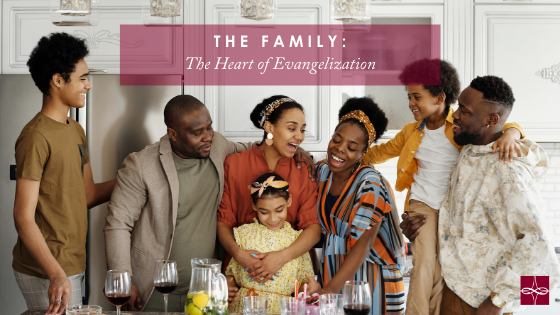

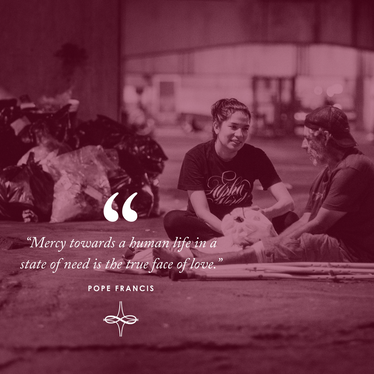
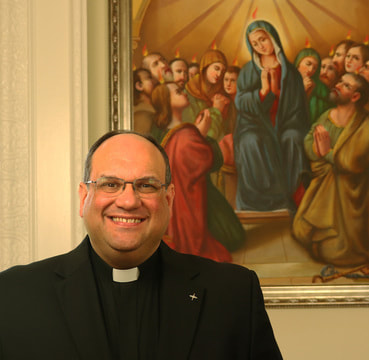




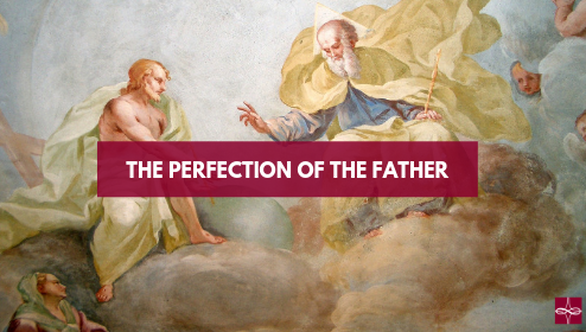

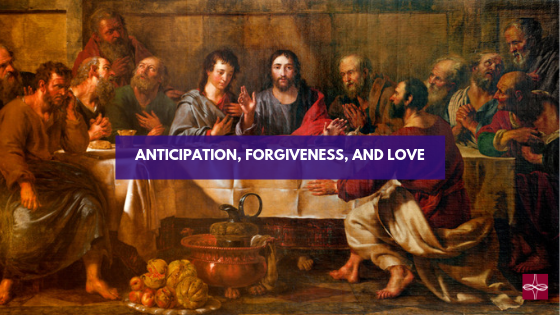

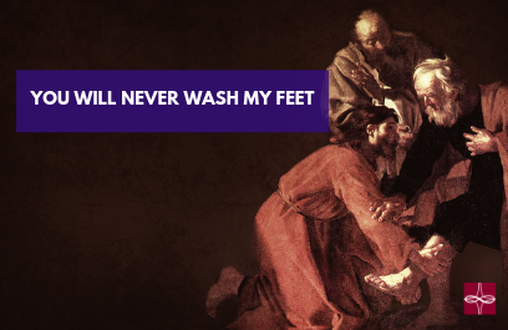

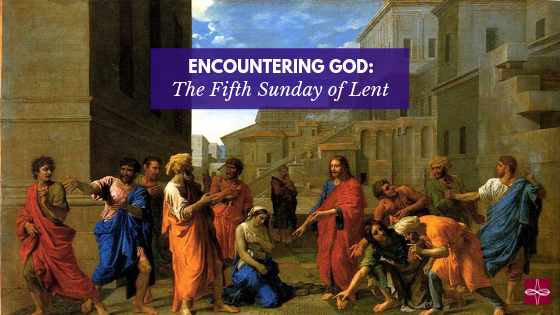

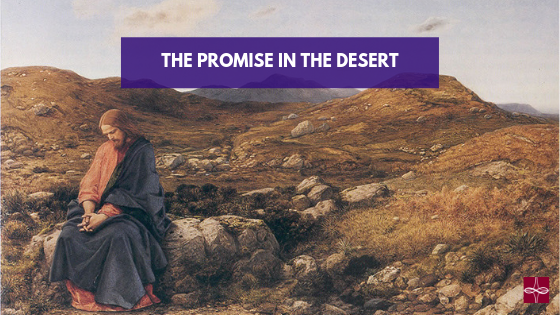

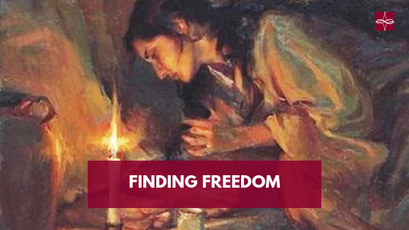

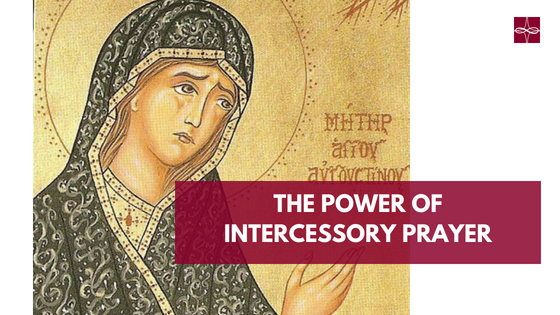

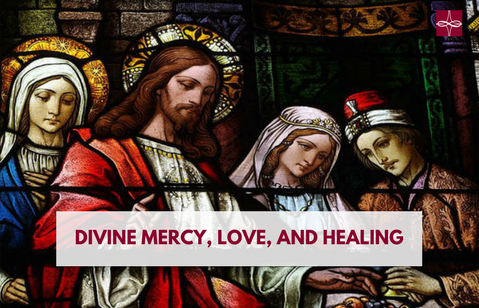





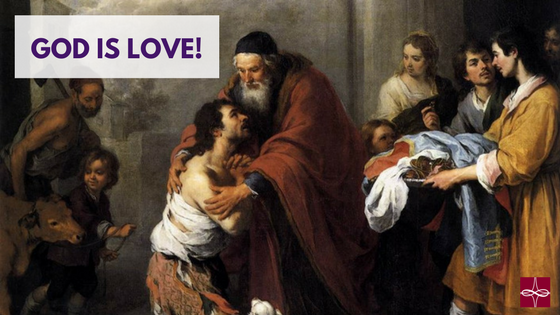

 RSS Feed
RSS Feed